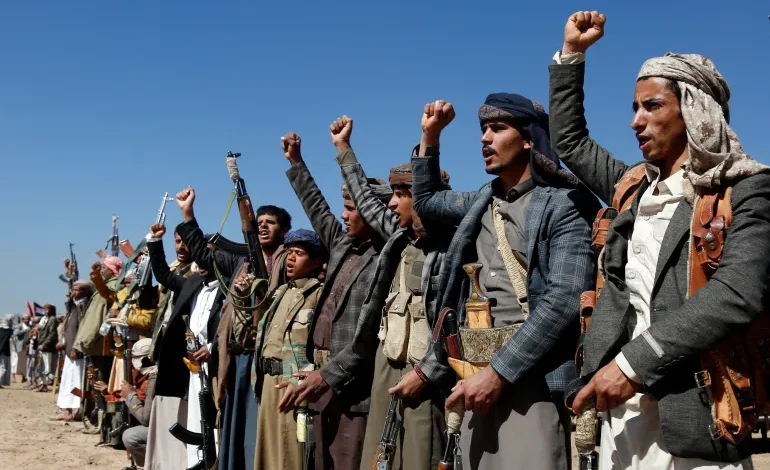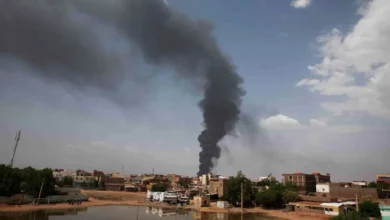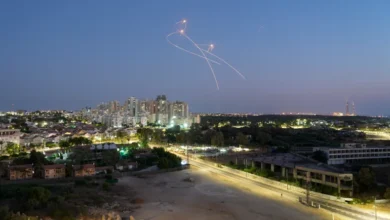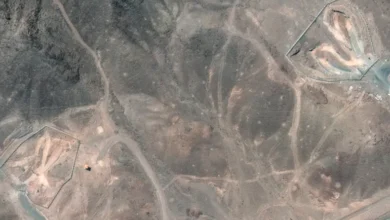Are the Houthi Red Sea interceptions going to bring about a regional war?

Yemen’s Houthis hit a US-owned ship on Monday, a day after attacking a US navy destroyer in the Red Sea, indicating that the group will not be deterred by recent air attacks on Yemen by the United States and United Kingdom.
Not only have the Houthis seen a spike in popularity domestically, but they also have found solidarity among the so-called axis of resistance of Iran-supported groups in the region. They were already incensed by Israel’s war on Gaza, which has killed more than 24,000 people, most of them civilians.
“Yemen is now becoming a participant in the regional escalation related to the war in Gaza,” said Raiman al-Hamdani, researcher at the ARK Group, a Dubai-based social enterprise that offers strategic management services.
An escalation loop
The Houthis control parts of western Yemen, including the strategically valuable Bab al-Mandeb Strait, which leads into the Red Sea and up to the Suez Canal.
They say they are intercepting Israel-bound and Israeli-owned ships passing through Bab al-Mandeb to pressure Israel to cease fire in Gaza or at least allow sufficient humanitarian aid in.
But they now seem to have expanded operations after hitting the US ship sailing in the Gulf of Aden, which is at least their second attack on a vessel in the body of water off Yemen’s southern coast.
So far, the Houthi interceptions have not caused any casualties in the Red Sea. But that could change if a direct hit on US or British soldiers happens.
“In such a scenario, retaliation in Yemen would take a much more aggressive approach,” al-Hamdani said.
And that could further inflame tensions regionally.
As the war has ground on, Iranian-backed militias in Iraq and Syria have targeted US bases with the US responding by assassinating Mushtaq Talib al-Saidi, aka Abu Taqwa, the leader of Harakat al-Nujaba, an Iranian-backed militia in Baghdad.
Lebanese armed group Hezbollah has traded drone and rocket attacks with Israel.
“We’re in the middle of an escalation loop,” Yemen researcher Nicholas Brumfield said. “It’s hard not to see wider regional escalation.”
The administration of US President Joe Biden has repeatedly said it is trying to avoid an escalation in regional tensions.
Still, critics say his words ring hollow as he has twice bypassed the US Congress to send weapons to Israel rather than condition aid or take steps that might encourage a ceasefire.
“Although these countries do not want to return to military engagement with the Houthis, ongoing escalation could change that calculus.”
Saudi Arabia has been working to solidify a ceasefire with the Houthis to end Yemen’s war, which has dragged on for the past decade, as Riyadh seems committed to avoiding a restart of past Houthi attacks that disrupted its oil output.
But the exchange of attacks in the Red Sea could derail the peace process.
“The Houthis are playing with fire, and one wrong move could have severe consequences,” al-Hamdani said. “However, it seems unlikely as both the Houthis and the Saudis as well as the US and the UK desire an end to the state of war they find themselves in.”
Steady intensification of Red Sea attacks
While the Houthis have yet to cause any casualties, their actions have disrupted global shipping through the Red Sea, prompting the US and UK to decide to attack Yemen.
“The US and the UK felt like they had been backed into a corner and didn’t really have another option,” Porter said.
“They’ve been issuing threats to the Houthis for some time now about their targeting of ships in the Red Sea, and those threats were starting to feel very redundant and very unsubstantiated.”










